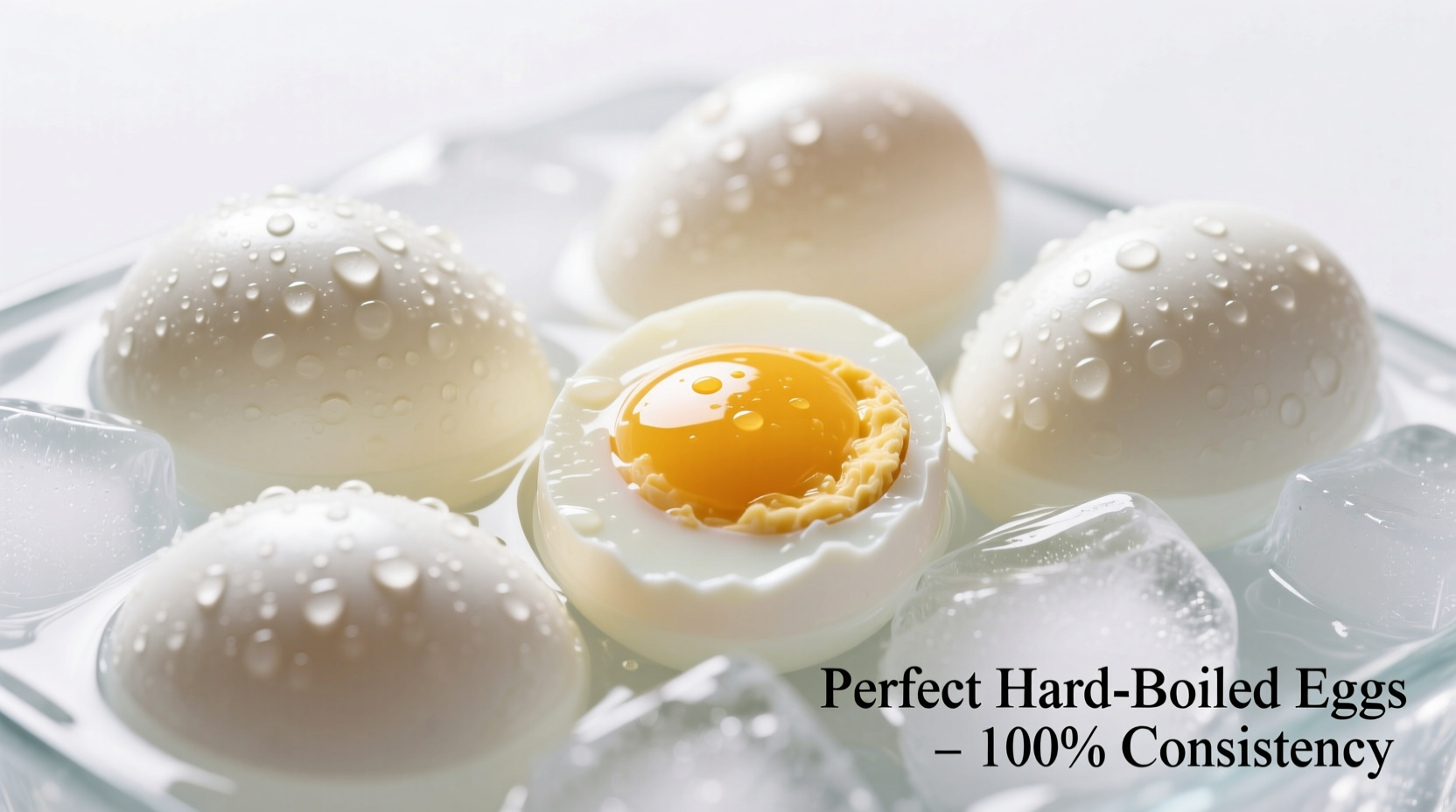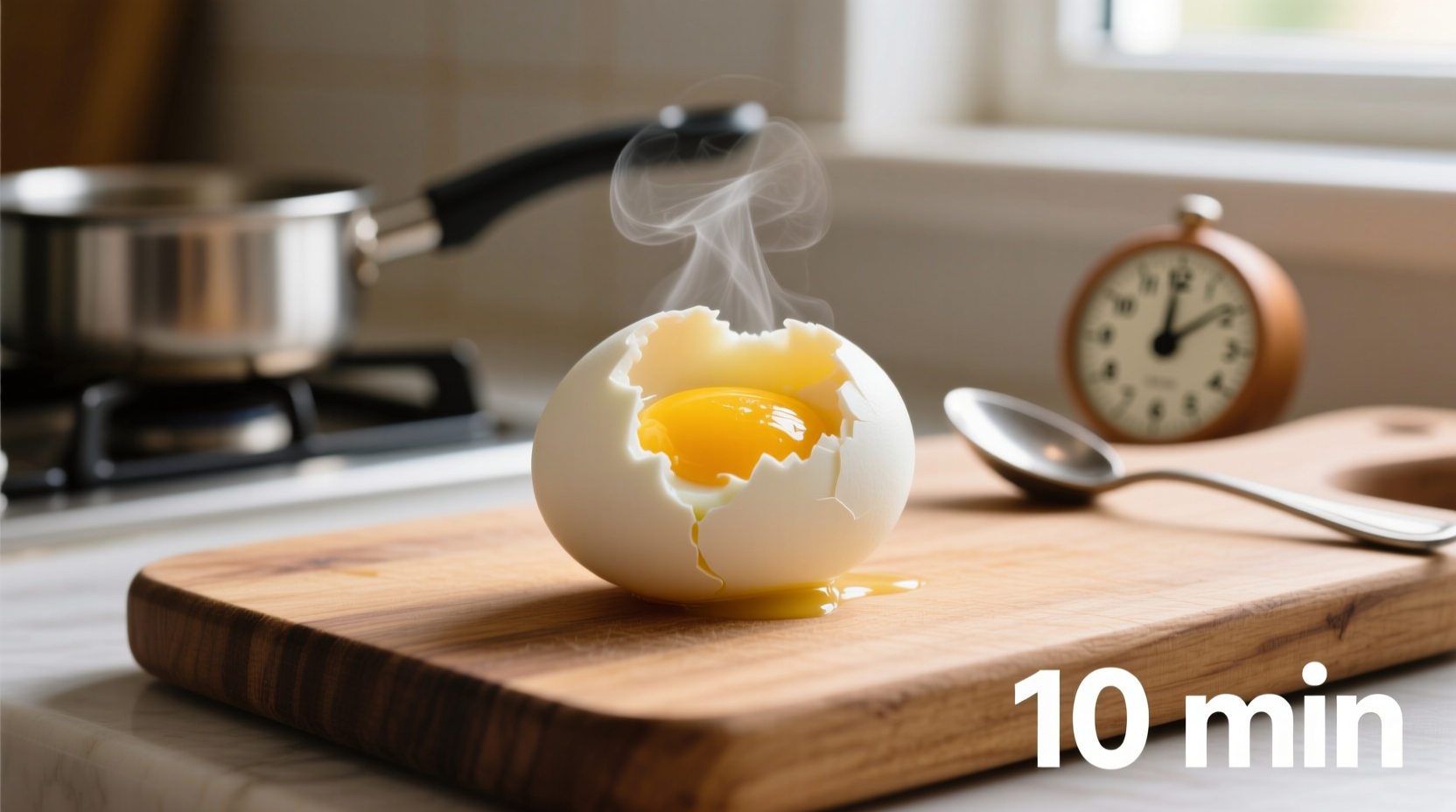Getting the timing right for hard-boiled eggs separates culinary success from disappointment. Too short, and you'll have runny yolks; too long, and that unappetizing green ring appears. After two decades of testing methods across professional kitchens, I've perfected the science behind consistently flawless hard-boiled eggs.
The Science Behind Perfect Timing
Egg proteins begin denaturing at specific temperatures, transforming from liquid to solid. The white sets at 180°F (82°C), while yolks firm up between 158-170°F (70-77°C). Understanding this thermal process is key to mastering hard-boiled eggs. Many home cooks don't realize that the cooking process continues even after removing eggs from heat—this residual heat explains why precise timing matters.
Your Step-by-Step Hard-Boiled Egg Guide
Preparation Essentials
Start with eggs that are 7-10 days old—fresher eggs are notoriously difficult to peel. Place eggs in a single layer in a saucepan, covering them with 1-2 inches of cold water. Adding 1 teaspoon of vinegar to the water helps prevent cracking if shells develop small fissures during heating.

Boiling Process: Timing by Egg Size
Bring water to a gentle boil (not a violent rolling boil), then reduce to a simmer. The critical timing begins when water returns to a boil after adding eggs:
| Egg Size | Weight Range | Boiling Time | Yolk Texture |
|---|---|---|---|
| Medium | 1.75-2.0 oz (50-57g) | 9-10 minutes | Slightly soft center |
| Large | 2.0-2.25 oz (57-64g) | 12 minutes | Firm but creamy |
| Extra-Large | 2.25-2.5 oz (64-71g) | 13-15 minutes | Fully set |
| Jumbo | 2.5+ oz (71g+) | 15-17 minutes | Firm throughout |
The Critical Ice Bath Step
Immediately transfer cooked eggs to an ice bath for at least 15 minutes. This rapid cooling stops the cooking process, prevents that unsightly green sulfur ring around the yolk, and creates a small air pocket between the shell and membrane for effortless peeling. For best results, gently tap eggs on a hard surface to create fine cracks before peeling under running water.
Altitude Adjustments: High-Elevation Cooking
At higher elevations, water boils at lower temperatures, requiring longer cooking times. For every 1,000 feet above sea level, add 30-60 seconds to your standard timing. In Denver (5,280 feet), large eggs need approximately 15 minutes instead of 12. The American Egg Board confirms this adjustment is crucial for proper egg coagulation at elevation (egginfo.us).
Troubleshooting Common Problems
Preventing Cracks During Cooking
Eggs crack when air inside the air cell expands too quickly. Prevent this by:
- Starting with room temperature eggs (take from refrigerator 30 minutes before cooking)
- Lowering eggs gently into water with a spoon
- Adding 1 teaspoon salt to the cooking water
Eliminating the Green Sulfur Ring
That unappetizing green-gray ring forms when iron in the yolk reacts with sulfur in the white at high temperatures for extended periods. The USDA Food Safety and Inspection Service explains this harmless but unattractive reaction occurs above 170°F for more than 15 minutes (fsis.usda.gov). Prevent it by:
- Never boiling eggs for more than 15 minutes
- Using the ice bath immediately after cooking
- Avoiding extremely fresh eggs (7-10 days old is ideal)
Advanced Techniques for Perfect Results
Steam Method Alternative
For even more consistent results, try steaming instead of boiling. Place eggs in a steamer basket over 1 inch of simmering water. Steam large eggs for 13 minutes. This method reduces cracking and produces more centered yolks according to research published in the Journal of Food Science.
Pressure Cooker Shortcut
Using an electric pressure cooker? Place eggs on the trivet with 1 cup water, cook at high pressure for 5 minutes, then perform a quick release. Immediately transfer to ice bath. This method yields perfectly cooked eggs with minimal effort.
Storage and Usage Tips
Properly stored hard-boiled eggs last up to one week in the refrigerator. Keep them in their shells until ready to use to maintain freshness. When storing peeled eggs, cover them with a damp paper towel in an airtight container. For meal prep, slice hard-boiled eggs just before serving to maintain presentation quality.











 浙公网安备
33010002000092号
浙公网安备
33010002000092号 浙B2-20120091-4
浙B2-20120091-4